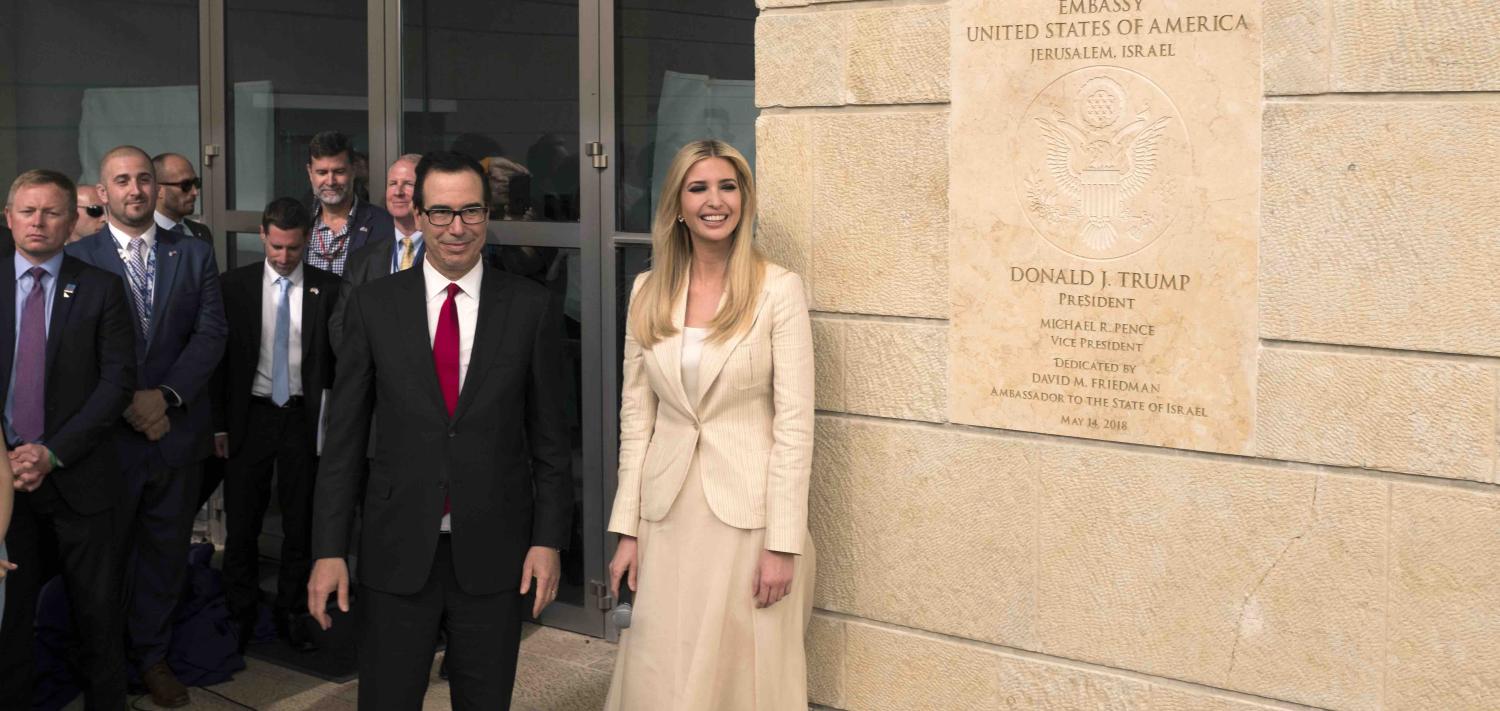After 70 years of waiting, Israel has finally achieved the international recognition it has long sought for Jerusalem as its capital. Though only a handful of staff will work from there initially, and no major nations are likely to relocate their own embassies any time soon, the opening of a United States Embassy in Jerusalem is deeply symbolic. It is certain to reshape the dynamic of the Israeli–Palestinian conflict – and, potentially, for the better.
The new US Embassy is located in what is known as West Jerusalem, an area where Israel’s claim to sovereignty cannot be in any doubt. Israel has controlled this territory since its founding as a state in 1948. Most of the neighbourhoods are Jewish. All of Israel’s major institutions of state are there. And foreign leaders all base themselves and conduct meetings in West Jerusalem when on official visits.
The numerous peace deals proposed and discussed envisage West Jerusalem remaining under Israeli sovereignty. The move of the US Embassy to Jerusalem, then, is simply a recognition of reality.
As President Donald Trump and US officials have been at pains to point out, it does not preclude the capital of a future Palestinian state being located in East Jerusalem, nor does it amount to recognition of Israeli claims of sovereignty over other parts of Jerusalem. These issues remain unresolved, and subject to Israeli–Palestinian negotiations.
The reality of a state of Israel with Jerusalem as its capital is a reality which is uncomfortable for some, especially those among Palestinian and Arab publics who nurture the illusory hope that one day Israel will be destroyed or disappear. But this reality is one that needs to be acknowledged as the basis for any durable peace. Forcing rejectionists to deal with this reality is no bad thing. Only when they come to terms with the fact of the State of Israel will they be prepared to properly negotiate with it.
Just as the Palestinians are not going anywhere, neither are the Israelis. The heart of the Israeli–Palestinian conflict is that two peoples – roughly six million Jews, roughly six million Palestinians – have to find a way to live alongside one another on a tiny piece of land west of the Jordan River. Wishing the other away is no basis for doing so.
The human tragedy of recent deaths from clashes with Israeli security forces on the Gaza border only highlights the point. Hamas has hijacked these protests, which were initially about the dire humanitarian situation in Gaza (for which Hamas bears most blame), to seek to provoke conflict with Israel and so strengthen its own hand. The “March of Return” is intended to reassert Palestinian claims to the land of Israel and deny the legitimacy of the State of Israel. Hardly the basis for peace.
Trump’s unconventional approach to diplomacy is nothing if not disruptive. It seeks to upend negotiating dynamics and reset the table in favour of the US. We have seen this now with North Korea, Iran, and trade disputes.
There is no doubt such an approach carries higher risks. But in a conflict as intractable as the Israeli–Palestinian one, this may be what is needed.
After this move, the Trump administration will be in a unique position to deliver a peace agreement – one that either side would be loathe to reject (the Israelis because they know they are unlikely to ever get a more favourable US administration; the Palestinians because they will fear further damage to their national cause).
The test will be whether Trump takes this opportunity he has created.

